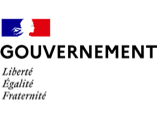The framework for developing and regulating digital healthcare
The regulation of digital health aims to implement a legal, organizational and technical framework to develop the uses of digital services, through the sharing of health data, between patients and professionals.
To meet the expectations of professionals and patients :
- Simplify the day-to-day use of digital services to avoid re-entering the same data, guarantee the digital identity of players;
- Strengthen trust in digital servicesby enabling patients or professionals to identify digital services that comply with interoperability, security and ethical guidelines, examples: Ségur referenced digital services, certified digital medical devices;
- Benefiting from digital equipment grants for healthcare professionals (funding for upgrades, software, etc.) and/or reimbursement by the Assurance Maladie for patients.

